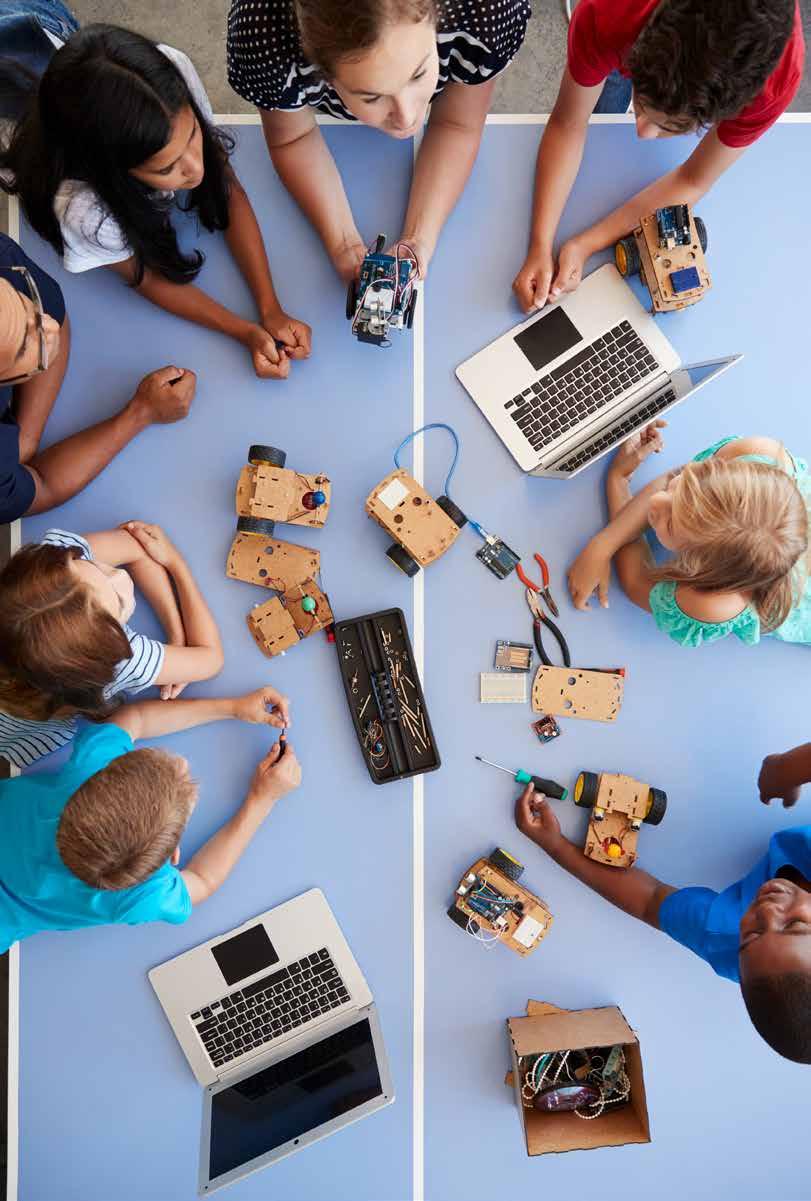
6 minute read
International Education in our Modern World
Learning is the most important part of every person's life. The process that begins at birth and lasts until the end of life, includes various forms of education, work and life experiences, and has a key role in the development of the human personality and its transformation.
An important, perhaps fundamental part of learning, is education, which we acquire through formal education systems, from the earliest days in pre-school institutions, through schools, universities, and later through various forms of professional advancement. Education is a subject of interest to all people, because it plays a key role in life and provides an opportunity for personal and professional development, improvement of the quality of life and creation of a better future for themselves and their families. It helps people to become active and informed citizens who are able to think critically and contribute to the development of society.
Throughout history, education has changed its forms, but it has always had the most important role for the individuals and society. The emergence of technology in modern society has also led to new forms of learning and different approaches, but it influenced only the form of learning, while the essence of education has gained even greater value. In today’s world that is changing at an incredible speed, where new scientific and technological discoveries happen on a daily basis, it is crucial that people are constantly educated and that their skills are developed in order to be competitive and successful both in the labor market and in other life roles. As much as education has a significant impact on individuals and society as a whole, it also contributes to the development of the economy. The countries that carefully plan their growth, that invest in human capital and education, tend to achieve faster economic growth and progress compared to those that fail to do so. As education improves, the society’s ability to create new technologies, solve problems and improve the quality of life also develops. Education is a key factor for the development of new technologies and innovations, and therefore the economy.

In today’s globalized world, where geographical boundaries lose their meaning, where cultures merge and live together, where people change more living places during their lifetime, it has become crucial that people are able to live and work in different environments and cultures, making education and migration two closely related phenomena.
We have witnessed that due to the rapid economic development of the region conditioned by the development of domestic, primarily technological companies, as well as the arrival of international companies to our region and the unique way of life it offers, a large number of people from different parts of the world choose to live here. On the other hand, a number of mostly young people from the region go to study abroad in order to gain international experience. With the development of international schools in the region, which have high-quality approach to education and in which the quality of knowledge gains importance, a new trend is emerging where people from the countries of the region stay in our area to receive education in foreign languages. These trends, which occur not only in the region, but also in all countries of the world, have led to a new, international view of education and the creation of new educational institutions and the expansion of existing ones, which improves the quality of education throughout the world, and especially in the region. One of the main advantages of international schools and universities is the provision of high-quality education. The international curriculum offers a wider range of subjects and teaching methods that prepare students for higher education or work anywhere in the world. Another key advantage of international schools is the multicultural environment. Students from different countries and cultures have the opportunity to get to know other cultures, languages and customs, which can be useful for their personal and professional future. International education is an important factor in preparing young people for success in the modern world.

In today’s globalized world, where geographical boundaries lose their meaning, where cultures merge and live together, where people change more living places during their lifetime, it has become crucial that people are able to live and work in different environments and cultures, making education and migration two closely related phenomena.
The accelerated economic development of countries, lack of labor force, primarily in Europe, the increased migration of the working population, access to modern technologies and the possibility of affordable travel, made education available to most people. An increasing number of professional agencies in the region enable young, talented people to gain access to international education in the region and the world through various types of scholarships, student exchange programs or other types of funding, and thus get the opportunity to develop their skills, talents and enrich their life experience. The agencies actively participate in promoting higher education and schools and offer help in making the best choice. International education contributes to the development of a global perspective, breaking of prejudices and accepting of differences, developing innovations, improving the economy, establishing international connections, better understanding between peoples and developing a better and more aware society as a whole. If we look at all aspects of international education, we can conclude that it plays a key role in the development, creating new opportunities for individuals and contributing to the progress of the entire society and civilization.
That is why we at The Collection decided to bring this topic closer to you, our readers, because we know that the choice of education is perhaps the most important decision you will make for yourself and your family members. The extensive analysis we made showed that there are top educational institutions in our region, with prestigious licenses and high-quality education, and special learning methods that meet high European standards and very strict criteria. In the following editions we will try to present the importance of this topic, as well as a rich offer of high-quality educational institutions in the region (and worldwide). We hope you will enjoy.










